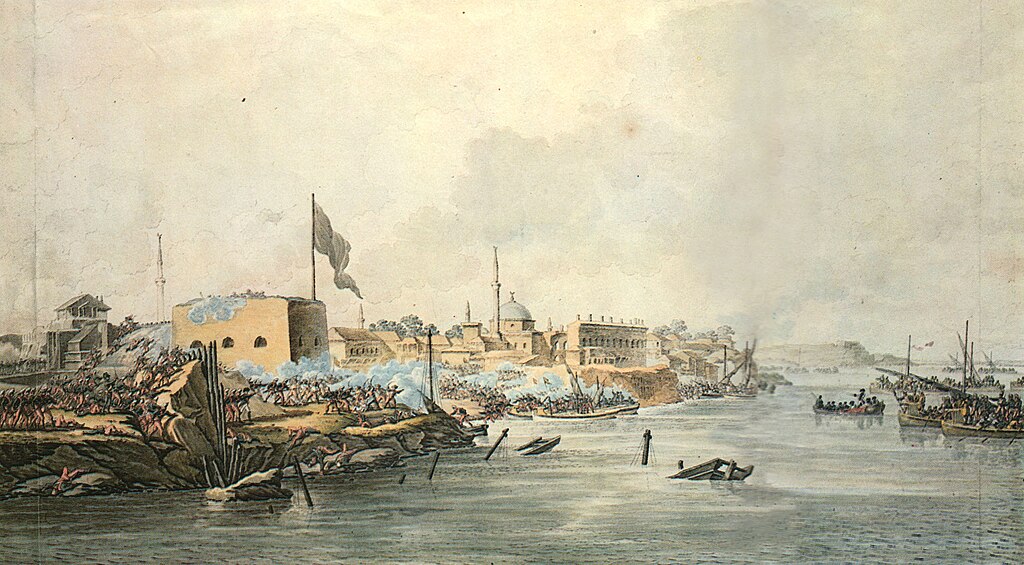
by Ralph Berry
‘Glory to God and to the Empress! Izmail’s ours.’
How the place-names of history return to full view, for reasons that are never the same but always linked to geography. The Empress Catherine had ordered Sudakov in 1790 to take Izmail, an immensely strong port city held by the Ottomans. He took it after a bloody and prolonged battle that held the gaze of all Europe, including Byron, who devoted two cantos of his best-selling DON JUAN to the conflict.
It is first-rate war reporting. Sudakov’s message to Catherine is even more terse than Marlborough’s tavern-bill to Queen Anne, on the back of which he scrawled that the general commanding the French forces at Blenheim was in his coach.
Enough of victories. Today Izmail is again the focus of conflict, between Russia and Ukraine, with no end in sight. A Russian warship fired warning shots as it intercepted a cargo ship, the Sukru Okan operated by a Turkish company. The Russian Vasily Byko, a new Project-22160 patrol boat, fired its machine gun to force the Sukru Okan to stall in the Black Sea and then boarded it with a naval helicopter. The Sukru Okan had tried to outrun and outwit the Vasily Bykov near Turkish and Bulgarian waters. The ship’s crew did not respond to Russian calls to stop, and the inspection team made them lie down spreadeagled on the deck. while the search went on. Briefly, I saw the Sukru Okan crew on Sky News in this distressing posture.
It was not repeated later, presumably to spare the feelings of the Ukrainians. The UK media make no doubt of their pro-Ukraine sympathies (though the hard men of the print industry refuse to yield on the ancient spelling of ODESA, scorning the fashionable ODESSA).
After the inspection team had completed their work, the ship was allowed to move to Izmail. Presumably, arms smuggling was the issue. The grain deal that had allowed ships to dock in Ukraine to load grain after they had been inspected by Russian officials has collapsed. Ukraine, said the Kremlin, had refused to reopen an ammonia pipeline. Izmail is now subject to a double blockade, on arms (both sides) and grain shipments (largely at Russia’s disposal). Both Kiev and Moscow have warned that since the collapse of the grain deal, they will treat cargo ships as arms smugglers. So Izmail is neutralized for two separate but linked reasons, grain delivery and arms smuggling. Izmail, if not ‘ours’, is certainly not anyone else’s.
We are left with a situation that is in part centuries-old, Russia’s eternal demand for control of the Black Sea and warmer waters. Izmail retains its strategic importance close to the mouth of the Danube.
The new part is Ukraine, which has just dismissed angrily a suggestion from NATO that it may have to cede some territory to Russia in order to join the alliance. I have filed this news under ‘Greek Kalends.’








2 Responses
For a person who sees some profound meaning in the difference between spellings of “Odesa” vs “Odessa”, it is a little odd to mistake Suvorov for “Sudakov”, and Bykov for “Byko”. I won’t dispute here the larger point (though my sympathies in this war are obviously opposite) — but a stickler for accuracy in spelling names should be more through in his research…
Well, there you go. Until now, I had never seen Odessa referred to as Odesa, certainly not in English. I must have completely glosed over it.